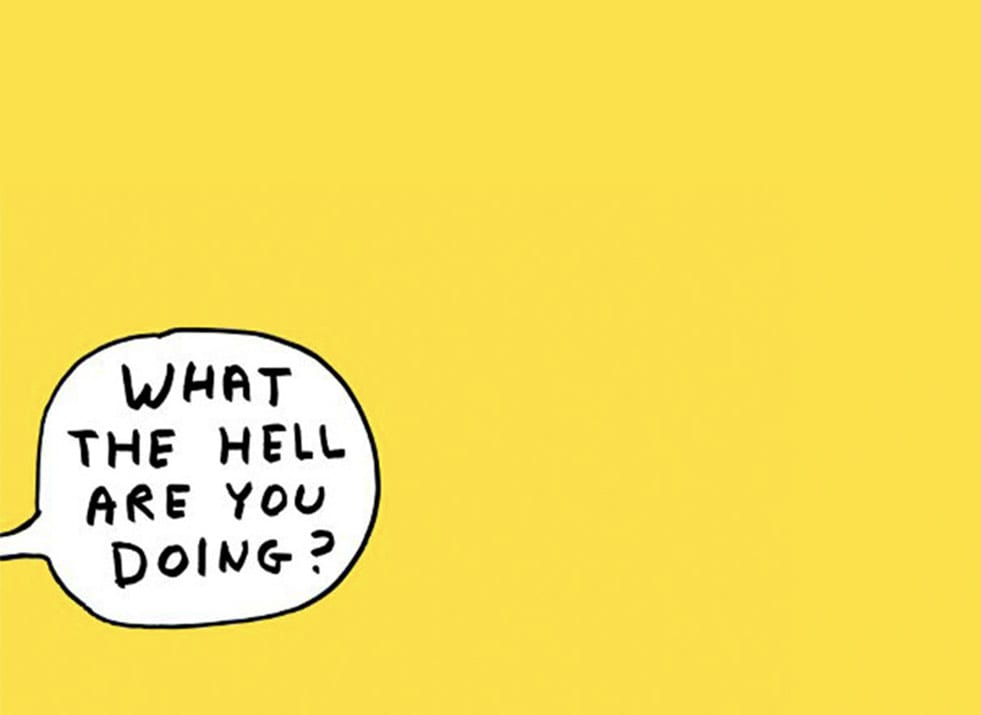Scenarios of complicity: What to do when someone is getting harassed

Since the outpouring of sexual harassment and assault allegations following The New York Times’ reporting on Hollywood mogul Harvey Weinstein’s sexual misconduct, it seems that powerful men are finally experiencing some sort of repercussions for their bad behavior. With widespread conversations about workplace sexual harassment putting pressure on companies to respond publicly to allegations, more and more people are being forced to reckon with the harassers and abusers in our midst. While it is easy to vilify the accused and lament their long overdue justice, it is much harder to examine how we all continue to allow or even support this type of behavior. I’m not talking about the obvious ways in which people aid or cover up harassment and assault, but rather the ways we contribute to others’ harm simply by being passive.
How many times have you seen something that you recognized was totally off, but didn’t do anything about it? There are many reasons for this, a huge one of them a survival instinct — pointing out harassment or assault can not only position you as a target for the same treatment, but can also expose you to the doubt and backlash that survivors often face when they speak up. If it’s risky for survivors to report their own harassment or assault, it is understandable that those who have merely witnessed or heard about abuse have less motivation or investment in coming forward. We may have only heard rumors, or think it is not our business, or be at the mercy of workplace power dynamics. It is hard to confront harassment, period. But the only way to stop it from happening is to keep making it difficult for people to get away with it. By saying nothing we are not only protecting ourselves at the expense of others, but also complicit in that behavior. Let’s talk about some ways we can help call out harassment while still staying safe.
Scenario 1: Someone makes an inappropriate “joke”
How you are complicit: Laughing along or brushing it off.
What you can do instead: Call them out. You know something is bad when you hear it. Instead of awkwardly laughing it off, say something like, “Hey, don’t talk like that, it’s really inappropriate,” “That makes me really uncomfortable,” or straight up “Wow really? Not cool, dude.” Be direct and serious.
Scenario 2: Someone won’t leave another person alone at the bar/office Christmas party/etc
How you are complicit: Looking away and ignoring it.
What you can do instead: Interrupt and say you need to borrow the victim for a minute and lead them away from the harasser to a safer place with other people. Or, if you’re friends with the harasser, lead the harasser away and tell them that they are clearly making that person uncomfortable. If it is a workplace situation, you can add that if they don’t stop, you will have to report their behavior. If they persist, bring their behavior to the attention of others so that if you and their victim do decide to report them, you have corroborating witnesses.
Scenario 3: One of your colleagues is known to get touchy-feely with other colleagues at drinks after work. He invites your newest colleague out
How you are complicit: Not warning your new colleague about this person’s behavior.
What you can do instead: Speak up. You may be worried that it’s none of your business or you are overreacting since they haven’t done anything yet, but wouldn't you have wanted the same warning? Let them know, in private, about this person’s track record. If they feel that they need to go to be polite, offer to accompany them as a buffer.
Scenario 4: You’ve heard rumours that someone you are close to has been sexually inappropriate with someone you don’t know well
How you are complicit: Don’t bring it up to your friend.
What you can do instead: Confront them. You may feel awkward talking to your friend about it, especially if you don’t have proof, but continuing to be friendly while knowing that they may have abused someone else is not okay. If they didn’t do anything, then you can help clear that up, but if they did, wouldn’t you want to know? No one wants to believe that someone they are friends with is capable of such behavior, but you can like, admire, or respect someone AND believe they need to be held accountable. Just because someone treats you well does not mean they treat others well.
Confronting sexual harassment and assault is uncomfortable and scary, but staying silent only allows it to continue further. Sure, there are men in our lives who are not harassers or abusers, but there are also definitely men (and women) who have not done enough (or anything) to stop those who are. The only way we can move forward is to encourage everyone around us to do better, starting with ourselves.
Image source: Tumblr



